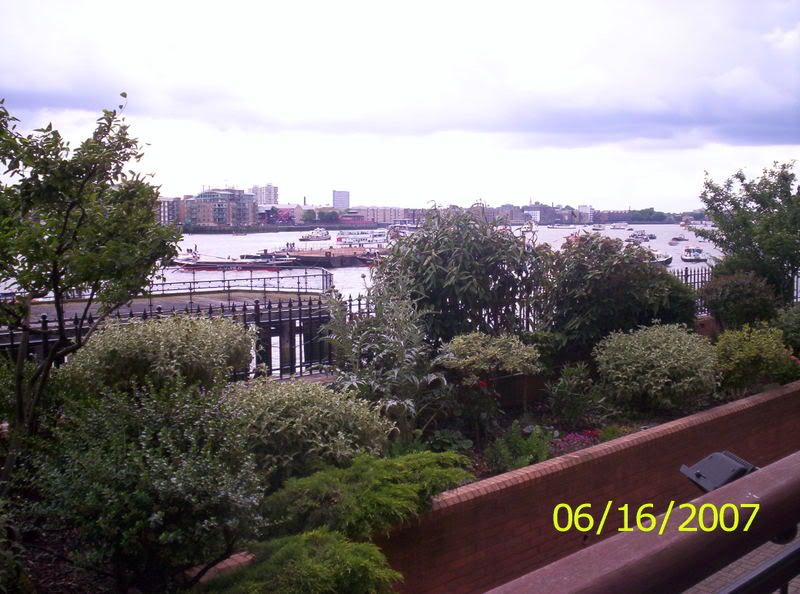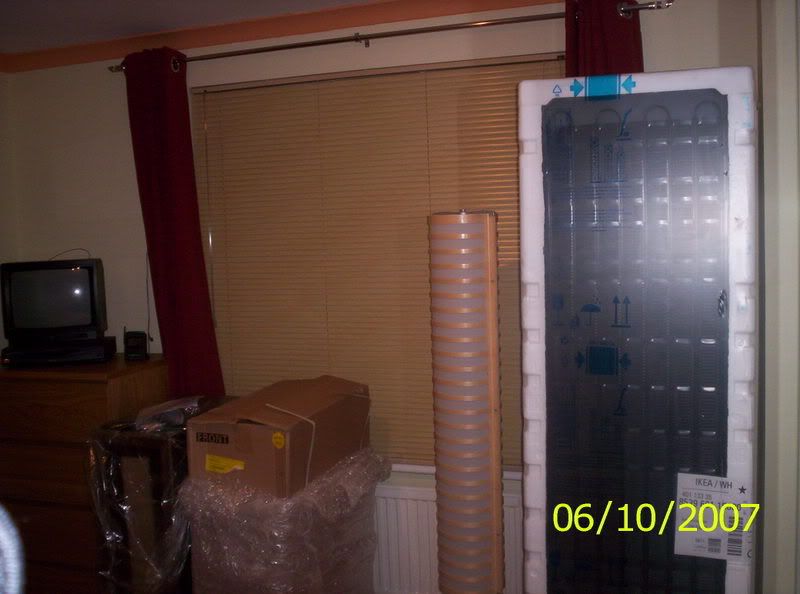I have been struck down by a really nasty cold. Yes... I know; it sounds wimpish (and, believe me, I have tried, in vain to fit my symptoms to Pneumonia or Bronchitis or something more respectable).
I started to suffer on Monday evening: I barely slept that night - waking up every thirty minutes or so and, by the time I got up on Tuesday morning, I was coughing prodigiously and my brain was doing that weird thing where it was occasionally pretending to turn off for a second. At one point I thought: "Wow... if this doesn't get better soon, I'm going to have to quit my job - my health clearly isn't up to it!"
I had a hectic schedule planned for the next three days and decided, perhaps foolishly, to make good on the commitments I made.
So, I made my way to King's Cross (taking a taxi rather than the DLR and the tube was my nod towards the illness) and sat on a train for two hours to get to York (after stocking up on drugs at Boots). That evening I travelled on two other trains for about four hours to get from York to a hotel in Norwich. That was an utterly miserable journey. (Although, to be fair, I suspect its misery is probably little different even if you're feeling on top form)
I had a three hour presentation and demonstration to give to some senior architects at one of my clients on Wednesday. My plan was to finish my preparation that night.
Sadly, on the walk from Norwich Station to the car park (my colleague gave me a lift to the hotel), I thought I was going to break my back due to the frequency and severity of my shivering (assuming my chattering teeth hadn't sliced off my tongue first).
By the time I made it to my hotel room, I was so cold I spent thirty minutes standing next to the radiator (turned up to full) in my suit and outdoor coat. I was *still* feeling cold by the end of this. My room-service dinner was left pretty much untouched :-( I can't remember the last time I lost my appetite.
I decided there was no point in trying to do further preparation and went straight to bed.
And that's when things began to get really weird.
I managed to get to sleep very quickly (which was a welcome relief, considering the difficulty I had the night before).
But, three hours later, I woke up feeling like I was being boiled alive. With hindsight, I should, perhaps, have anticipated this: the radiator was still turned up to maximum, after all (yes... I am an idiot).
However, my brain was clearly somewhat muddled.
No matter how I tried to rearrange the cover I either found myself too warm or too cold. Even after turning down the heating, I could not find a comfortable temperature. I swung from feeling too hot to shivering.
Eventually I figured out what was going wrong: the duvet was not a normal duvet. It was a cynical corrupt duvet. Yes: the explanation for my discomfort was that the duvet was not uniform in its construction: some parts of it provided more insulation than others. The answer was to rotate it by about forty five degrees to ensure an even insulation.
However, I had reckoned without one thing. It turned out that the duvet wasn't just non-uniform, it was under the control of the hotel reception staff. I deduced this active conspiracy because, even when I rotated the duvet to compensate for its non-uniform design, I still couldn't find an acceptable temperature: the hotel staff must be actively fighting me!
I spent several minutes trying to figure out why the hotel was doing this to me and what it would take to make them stop. Do they want my money?
Fortunately (for my ongoing freedom, at least), I chose not to call them and demand they stop interfering with my duvet and decided to take it up with reception when I checked out in the morning.
In the meantime, I went to the bathroom, had a glass of water, went back to bed and promptly fell asleep.
I thought it would probably be better not to mention my discoveries to reception when I checked out...
As for my illness.... well my cough got steadily worse throughout Wednesday and my presentation went reasonably well (but far from brilliantly).
I was most grateful to discover that a colleague had been found to stand in for me at another meeting today.
This was good because I felt even worse this morning. I have spent all the day sat on the sofa, barely moving. My one piece of activity has been to shuffle to the local shop and back for some lunch. I was coughing so hard (and my nose running so freely) when I returned that I thought I was going to die.
However, I am beginning to feel a little better now and am hoping that, if I take it easy tomorrow too, I should be ready to return to form at work on Monday.
Not a moment too soon. I hate being ill. I hate reneging on commitments I have made. And, even more, I hate sneaky amorphous, conspiratorial duvets. People, beware: are you sure your duvet isn't trying to attack you?!










